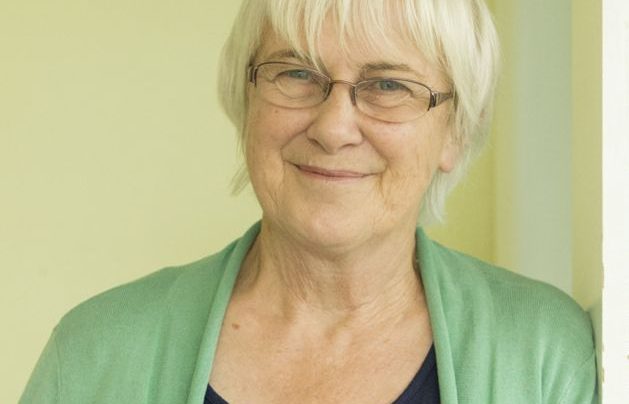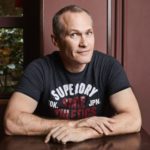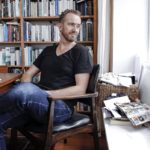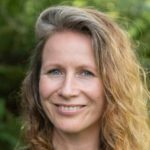Adrienne Jansen will be in-store on Thursday 11th of October 2018, 12-12:45pm, to talk about her new book A Change of Key with fellow author Brannavan Gnanalingam. They will be discussing their recent publications and the representation of the migrant and refugee experience in New Zealand literature. Below is Adrienne’s author interview, a little bit of information about herself and her new book A Change of Key.
About Adrienne
“I grew up in Wellington, with books, summer holidays in the Marlborough Sounds, a constant stream of people through our house, and parents with a strong sense of social justice.
Then I lived away from Wellington for a time (including several years in Canada) and eventually came back to Porirua, north of Wellington. I love Wellington, and Porirua in particular. I love its physical beauty, its mix of people, and the way you have to stand up for it because people like to put it down.
I studied at Victoria University and the University of Calgary, and in Calgary I discovered the extraordinarily interesting territory where cultures run up against each other. That interest has driven much of my work and my writing ever since.
Now I teach on the Creative Writing Programme at Whitireia Polytechnic, and I do a range of other writing and editing. For ten years I was part of the writing team at Te Papa, New Zealand’s national museum. We live at Titahi Bay in Porirua, with a big ocean view, an often wild wind, and great swimming in the summer. How lucky.”
About the book
Marko has come to the ends of the earth to escape a once illustrious past in Bulgaria. So why does a Polish bookstore owner call him a traitor? And who covertly photographed him for the newspaper?
Someone knows who he is. They are trying to expose him in his new country, and there is nothing he can do to prevent it.
A Change of Key tells the story of a multicultural group of migrants living in an inner-city block of social housing flats in New Zealand. It explores themes of social change and the hardships associated with existing in isolation from one’s family and culture. As they struggle through the realities of living in deprivation, Marko and the other migrants find salvation in friendship, community and classical music.
WHAT ARE YOU CURRENTLY READING AND HOW DID YOU DISCOVER THE BOOK(S)?
I’m currently reading Brannavan Gnanalingam’s Sodden Downstream, because I’m talking with him this week. I hadn’t read anything by him before and it feels like a real discovery.
WHO ARE YOUR FAVOURITE WRITERS AND WHAT DO YOU LOVE ABOUT THEM?
I’m choosing three books rather than three writers: All the Light We Cannot See by Anthony Doerr, which I absolutely loved, both for the story and the writing; The Yellow Birds by Kevin Powers, who is an ex-soldier and a poet. I remember reading the first paragraph of this novel, which is about the war in Iraq, and even that first paragraph gave me that breathless feeling that really good writing can give. Last choice – hard to choose. Maybe The Goldfinch by Donna Tartt, for its humanity.
WHAT BOOKS ARE ON YOUR BEDSIDE TABLE?
Sodden Downstream, A Man Called Ove (which I’m re-reading) and The Interregnum: Rethinking New Zealand, edited by Morgan Godfery, which is one of the BWB Texts series. But I’m not good at reading several books at once – I’m a one-at-a-time reader.
WHAT IS YOUR FAVOURITE BOOK-TO-FILM ADAPTATION?
Maybe Atonement. It’s a bit of a hard question, because the films I most remember aren’t adaptations. I looked up a couple to see if they had actually been adapted from books – Letters to Father Jacob, for instance, which is a slow, wonderful film. It is adapted from a short story, but I don’t think that counts (but now I’ve squeezed it in here anyway!).
WHAT BOOK HAVE YOU RE-READ THE MOST AND WHY?
I tend not to re-read many books – there always seem to be so many more books to be read. But I’d pick Cloudstreet, by Tim Winton. I haven’t re-read all of it, but I’ve re-read parts of it many times. I go back to it partly because of the characters, but also because of his amazing writing. I want to figure out how he gets so much energy into it.
WHO IS YOUR FAVOURITE LITERARY CHARACTER?
Right now, because I’ve almost finished it, I love Ove in A Man Called Ove. Well, I’m not sure that you love him, but you get very fond of him. But next week it will be someone else.
WHAT BOOK HAVE YOU ALWAYS BEEN MEANING TO READ BUT STILL HAVEN’T GOTTEN AROUND TO?
Well there are probably a hundred, because there are still a lot of classics I haven’t read, like Gone with the Wind, and War and Peace, Anna Karenina – a few big novels there. But the top of the list might be The Children Act by Ian McEwan.
WHICH THREE WRITERS WOULD YOU HAVE OVER FOR DINNER?
During the summer I usually pick one crime writer and read right through every one of their books I can find. So I would ask Jo Nesbo and Henning Mankell. Mankell in particular because I think he has a very interesting life apart from being a writer. And I’d ask Renée, because she reads a huge amount of crime fiction, and she has such a sharp mind she can ask all the questions and I’ll just sit and listen!
WHAT WOULD YOU COOK THEM?
I have no idea. Cooking’s not my strongest thing. I’m fine on everyday things, and I can get something together quickly for a few people who arrive, but I’d phone a friend who’s a very good cook and I’d say, you have to come over and cook. Anything you like so long as it’s great.
HOW ARE YOUR BOOKS SHELVED AND ORGANISED AT HOME?
Not tidily. At the moment they’re a shambles. But there’s a bit of order hidden somewhere. Because I teach creative writing, I have a lot of books about writing on the shelves behind my desk, and I’ve got my favourite books there too, the books I go back to time after time. Everything else is distributed a bit randomly through the house.
WHAT IS YOUR FAVOURITE LITERARY QUOTE?
Nigel Cox used to come and talk to the students on the Whitireia Creative Writing course, and he’d always say, ‘Play for keeps’. It’s not so much a quote, as advice, but I’ve always kept it in my head, and often quoted it.
A QUESTION FROM PREVIOUS AUTHOR INTERVIEWEE, CHESSIE HENRY:
“What’s the best writing advice you’ve had?”
That advice from Nigel Cox – play for keeps. Don’t ever settle for anything you wouldn’t be happy with for a long time.
Author photo courtesy of BWB Bridget Williams Books






